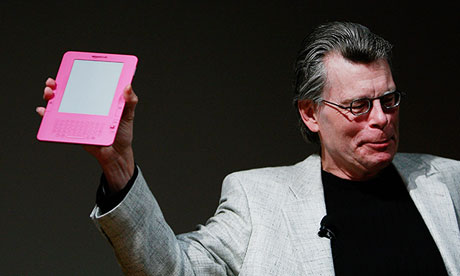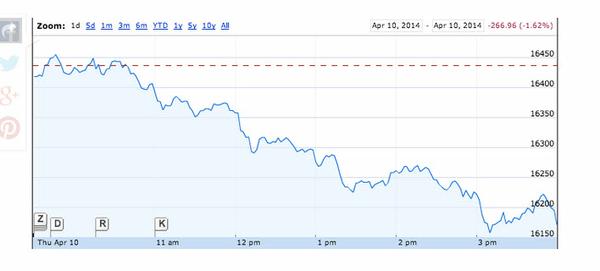O
Amazon to Launch New Crowd Source Platform, Now Recruiting KDP Authors
![8579276979_e78536971b_b[1]](http://the-digital-reader.com/wp-content/uploads/2014/09/8579276979_e78536971b_b1-250x166.jpg) Here’s a new publishing program from Amazon which is so new that it doesn’t yet have a launch day, URL, or even a name.
Here’s a new publishing program from Amazon which is so new that it doesn’t yet have a launch day, URL, or even a name.
Late last week Amazon started sending out emails to KDP authors, informing them of a new program which Amazon plans to launch soon. According to the email, which was forwarded to me by author Angela Kulig and by Amazon’s pr dept, when the new program launches authors will be welcomed to submit their unpublished book to what I would describe as a crowd sourcing program.
Details are still scarce, but the email did say that it will work like this:
- Authors will be asked to submit their complete, never-before-published book and cover.
- After a few days, we will post the first pages of each book on a new website for readers to preview and nominate their favorites.
- Books with the most nominations will be reviewed by our team for potential publication.
I’ve confirmed the new program with Amazon pr spokesperson Susan Stockman, who told me that this program will be neither KDP nor Amazon Publishing, but something new. Unfortunately the program is so new that she was unable to provide much additional information.
Edit: If you would like to sign up to be notified when this program launches, Amazon has started a mailing list.
She was, however, able to confirm the contract terms mentioned in the email. Note what it says about the print and digital rights:
- Guaranteed advance & competitive royalties: You will receive a guaranteed $1,500 advance and 50% royalties on net eBook revenue.
- Focused formats: We acquire worldwide publication rights for eBook and audio formats in all languages. You retain all other rights, including print.
- 5-year renewable terms, $5,000 in royalties: If your book doesn’t earn $5,000 in royalties during your initial 5-year contract term, and any 5-year renewal term after that, you can choose to stop publishing with us.
- Easy reversions: After two years, your rights in any format or language that remains unpublished, or all rights for any book that earns less than $500 in total royalties in the preceding 12-month period, can be reverted upon request – no questions asked.
- Early downloads & reviews: One week prior to release date, everyone who nominated your book will receive a free, early copy to help build momentum and customer reviews.
- Featured Amazon marketing: Your book will be enrolled into the Kindle Owners’ Lending Library, Kindle Unlimited as well as be eligible for targeted email campaigns and promotions.
Amazon isn’t the first publisher to try crowd-sourcing (in fact, a couple have launched similar programs in the past couple years) but if and when this program launches they will certainly be the most visible.
What do you think of the program?
I’ll confess; as a non-author I am reserving my opinion in order to let the experts way in.
For example, glancing through the KDP discussion forum where I first found this story, I can see that a couple authors have already expressed interest in this program:
Most of us, however, are not selling as well as we would like. For example, in a good month I may move fifty books, more during promotions. My titles have good editorial and customer reviews (and NOT by friends and relatives, either), and I’d like to think they are worth reading. I know one can’t put much stock in opinions of people one knows, but when people I haven’t seen in years have gotten in touch to tell me how much they enjoyed one of the books, I have to think that means something. All of that said, the books haven’t exactly caught fire. I could just be deceiving myself, but I’ve always felt being able to market to just the right audience could cause them to catch fire. For me, this kind of offer sounds tempting because of Amazon’s ability to market effectively on their own site. Anyway, the relative ease with which the rights revert to me if I don’t get the results I expect would reduce any risk involved.
And:
I’d be all over it with a stand-alone just to generate more name exposure, which could lead to sales of my other books.
What do you think?






